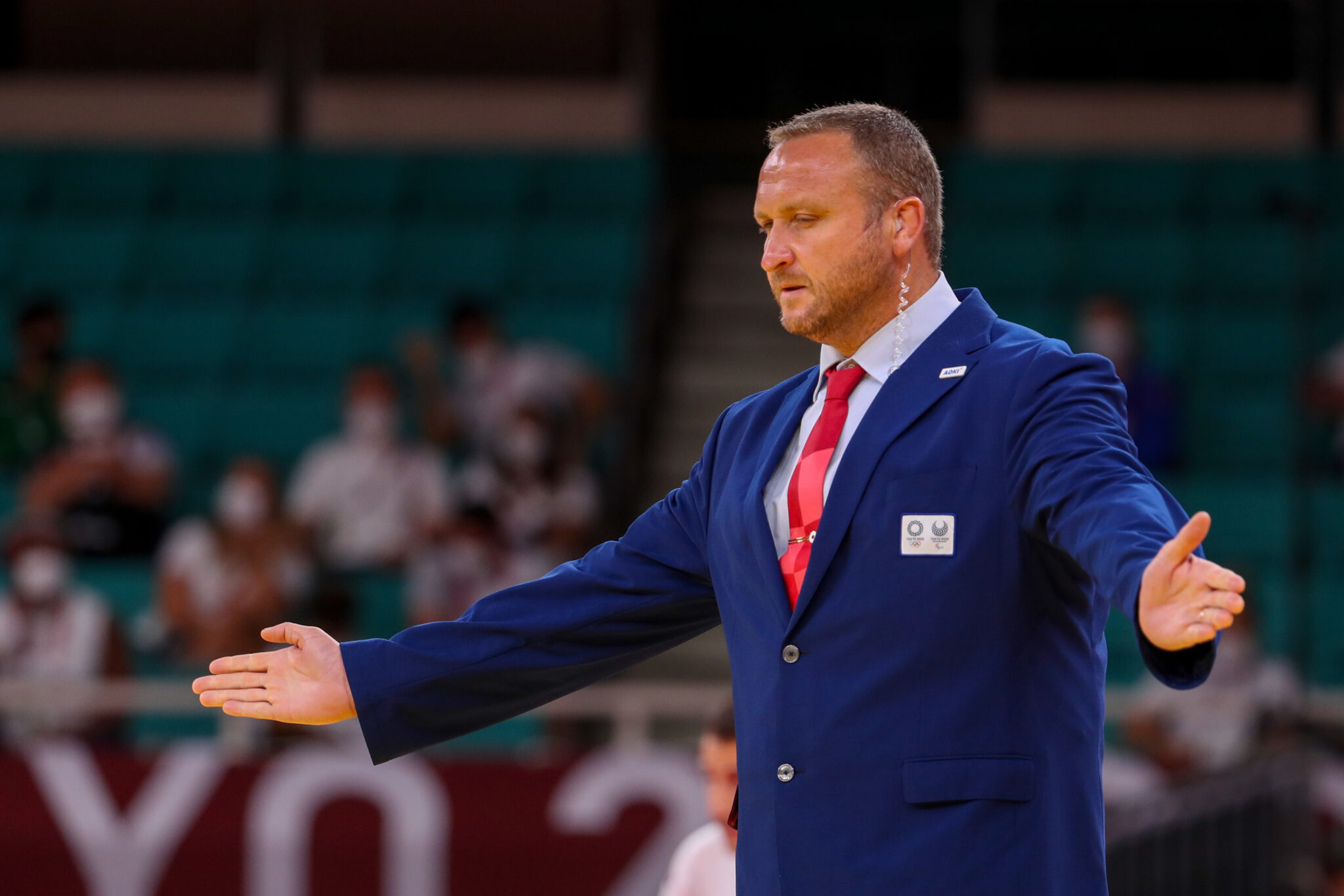Refereeing at the Olympic Games is a crucial aspect of the sport, ensuring the safety of the athletes, consistent interpretation and application of the rules, clear communication of decisions using standardised signals and, above all, fair play.
Just like the athletes, the referees have to go through a qualification process. The best 16 have been selected to appear on the world’s biggest sporting stage. In a few days’ time, the Champ de Mars Arena will welcome not only the world’s best judoka, but also the world’s best judo referees.
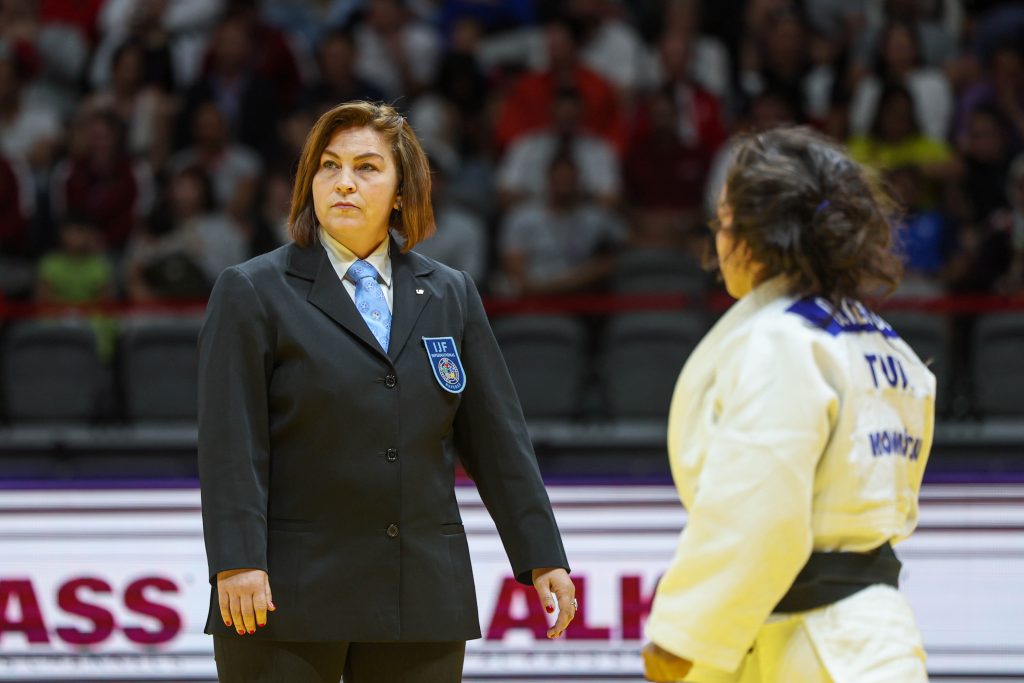
From London to Paris, Ioana BABIUC (ROU) is full of excitement and further notes:
There are only a few days left until the Paris Olympic Games and they are getting shorter and shorter. I think with joy about what is to come and with impatience to see my colleagues again and to be together with the best athletes in the world. It is a great honour to be part of this wonderful group, this beautiful family of Judo, and my heart flutters just by saying and talking about the Olympic Games.
I always compare myself to the athletes and just as much we have to be prepared for this great event. All in all, it is a joy, it is a fulfilment, a satisfaction, an honour, and being able to head to yet another Olympic Games as a referee I also believe that I have a star that guides me. I hope to be as I feel.
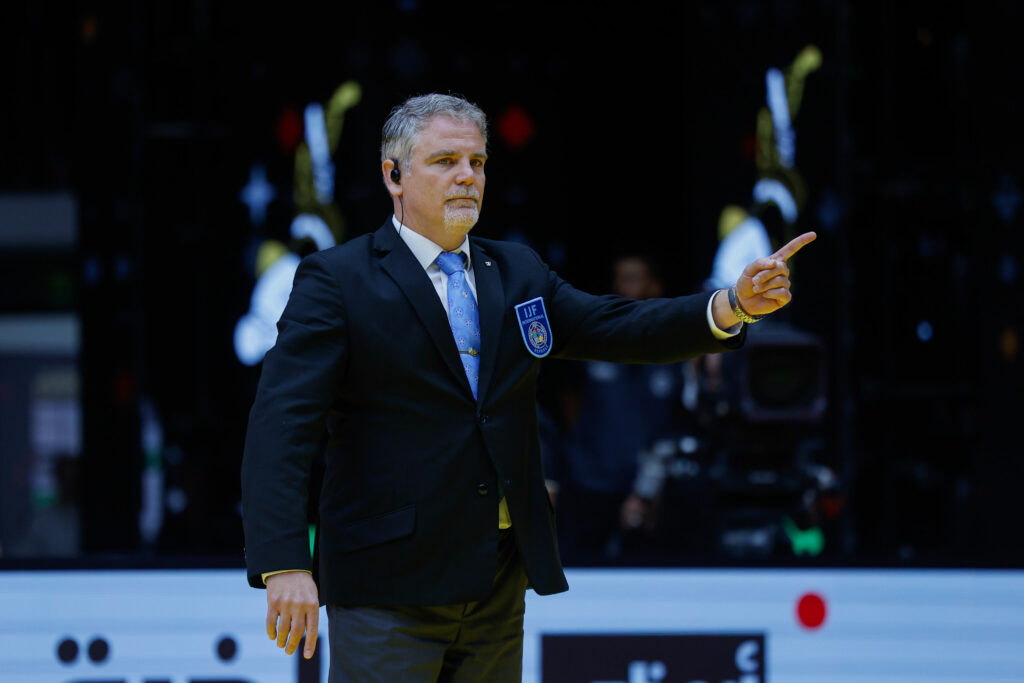
It will not be the first rodeo for GOSZTONYI Balazs (HUN) either, who is just as excited:
Since I was a child, my goal was to take part in the Olympic Games. Unfortunately, I didn’t make it as a competitor, but I did as a referee. I am very proud to be one of the cogs in such a serious sport, helping the athletes to choose the best competitor on the day.
Standing on the tatami in front of thousands of spectators in Paris, the European cradle of judo, is an uplifting feeling. Everyone knows and understands what is happening on the mat and expresses their feelings. In such an atmosphere and with such attention, it is almost an art to remain inconspicuous and objective. After serious preparation, 16 of us have made it this far to ensure the purity of the games.
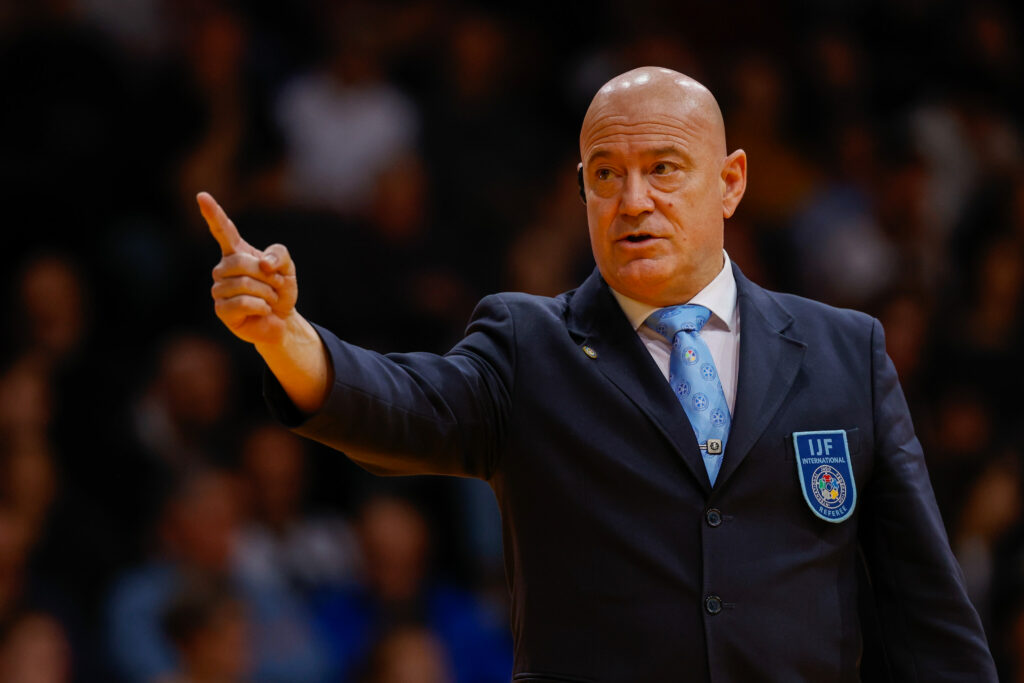
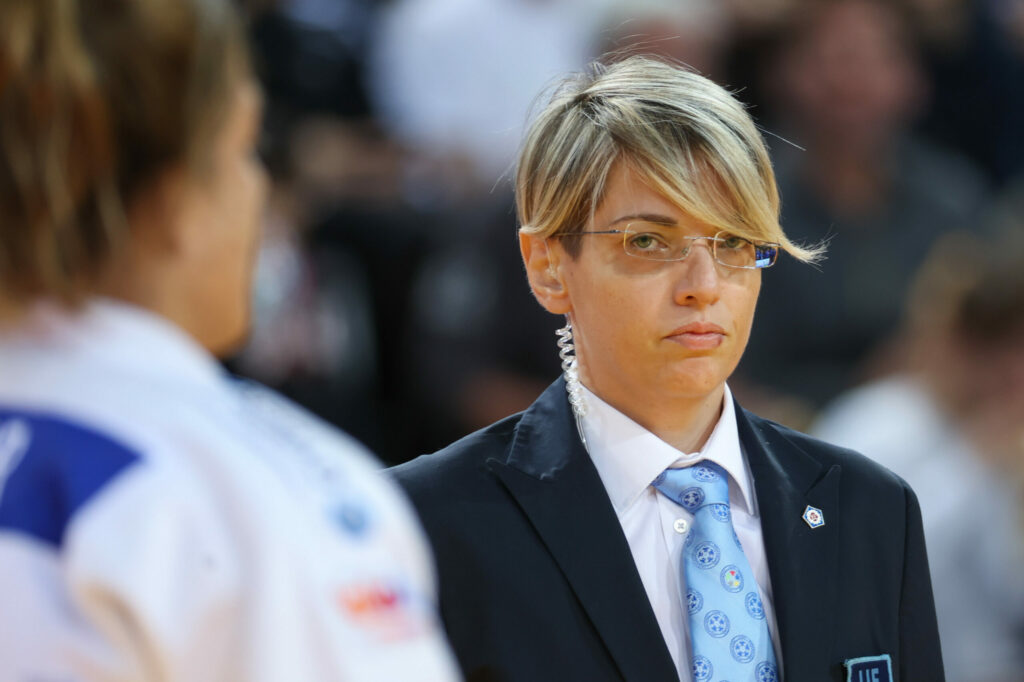
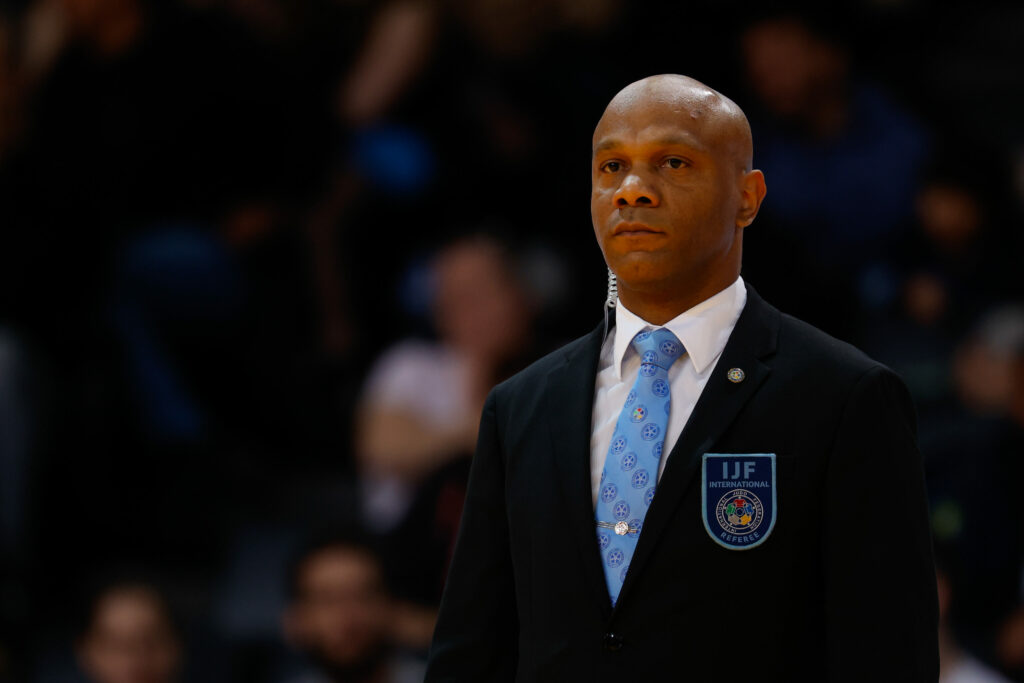
Paris 2024: Referee’s Corner
Scoring
- Hajime: A verbal command to ‘begin’ the fight.
- Ippon: (complete point, marked as 10 on the scoreboard): the referee raises one arm high above the head with the palm of the hand facing forward.
- Waza-ari: (nearly ippon, marked as 1 on the scoreboard): the referee raises one arm sideways to shoulder height with the palm of the hand facing downwards.
- Waza-ari-awasete-ippon: (two waza-ari score ippon): first waza-ari, then the ippon gesture.
- Osaekomi! (Hold down is on!): while bending his body towards the athletes, shall point his arm, with the palm of the hand facing downwards. The referee must check that the timekeeper has started the timer before stopping the gesture and returning to a normal position to control the contest.
- Toketa! (Hold down broken!): while bending his body towards the athletes, shall raise one of his arms, with the fingers of the hand straight and forward and the thumb up, to the front and quickly wave it from right to left two or three times. He must check the timekeepers correctly stop the time.
- Mate! (Wait! Stop the fight.): shall raise one of his arms to shoulder height approximately parallel to the tatami and display the flattened palm of his hand (fingers up) to the timing and scoring technical officials.
- Kachi: to indicate the winner, at the end of the fight, the referee and the athletes shall return to their positions at start of the contest; the referee take one step forward, indicate the winner raising one hand, palm in, above shoulder height towards the winner; then take one step back to return to the contest start position.
Penalties
- Shido: Minor penalty for infractions like passivity, gripping infringements, false attacks etc. Accumulating three shidos results in disqualification (hansoku-make).
- Hansoku-make: Direct disqualification for series of fouls or an illegal techniques.
Technology
- Video Review (FairReplay System): Allows refereeing supervisors to review contentious decisions with the help of video replay. This video reply system is correlative to Video Assistant Referee (VAR) which used in football.
Training and Certification
Referees undergo rigorous training and certification by the International Judo Federation (IJF) to officiate at Olympic level. They must keep up to date with rule adjustments and attend various events around the world as part of their development.
These elements together help to maintain the integrity and excitement of Judo at the Olympic Games, providing a fair and exciting experience for athletes and spectators alike. Judo must be understood to be appreciated. Read more about the Refereeing Guidelines at the following link.
Author: Szandra Szogedi



